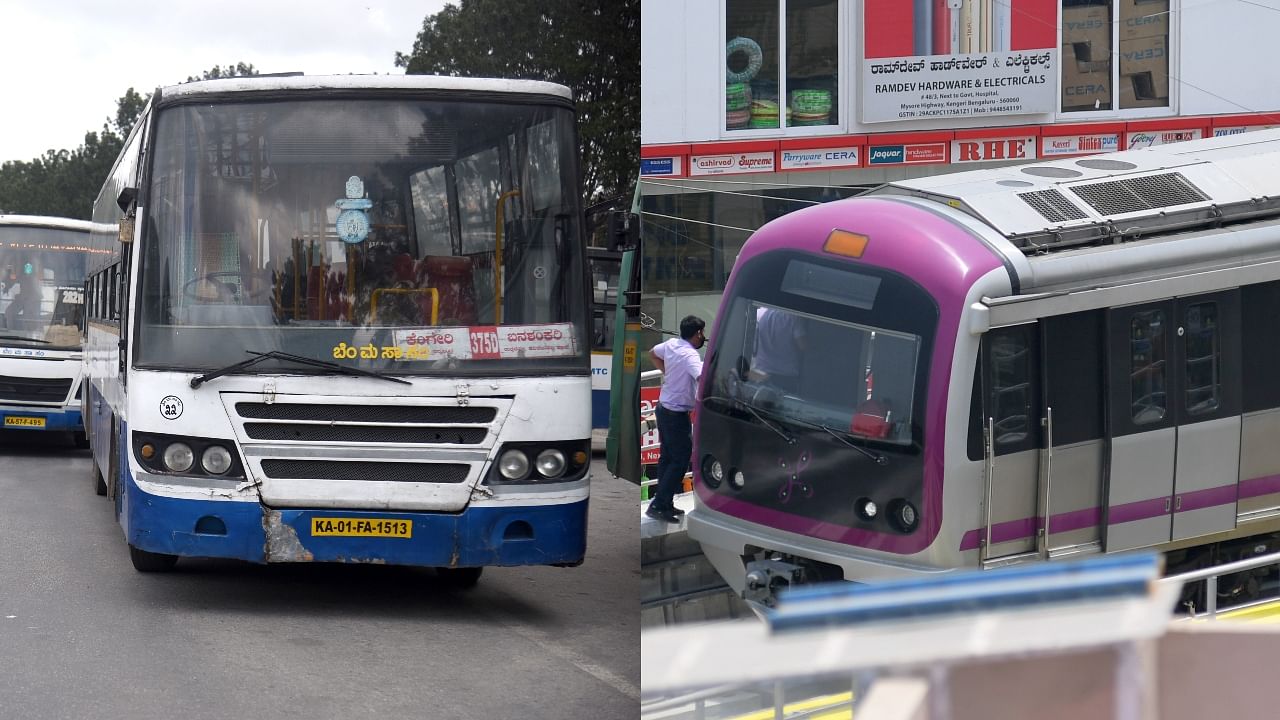
Bengaluru is poised to get a Unified Metropolitan Transport Authority (BUMTA) lawfully established. The Centre has shown its intent through the National Urban Transport Policy (NUTP), 2014, to assign the responsibility to the states to manage and provide urban transport services that envision the establishment of quality-focused multi-modal and integrated public transport systems. Based on the model UMTA Bill, 2016, developed by the Centre, the legislative framework incorporated as a Chapter in the KTC (P&D) Bill, 2021, which is being proposed, can be a roadmap to set up UMTA for Bengaluru.
The BUMTA having Bengaluru Metropolitan Mobility Area (BMMA) within Greater Bengaluru Metropolitan Area (GBMA) as its jurisdiction will consist of a governing council chaired by chief minister and comprising chief secretary, ministers for urban development, home, transport, and MPs and MLAs within BMMA, the mayor and elected members of the GBMPC.
A Special Purpose Vehicle in the form of a public company on the lines of City Industrial Development Corporation Limited of Maharashtra, to be called Bengaluru Metropolitan Mobility Corporation Limited (BMMCL), can be incorporated. The BMMCL shall be declared as a Special Planning and Development Authority that can exercise all the statutory and enforcement powers of BBMP vested under the proposed NBG Bill and BDA under the proposed KTC (P&D) Bill, and KIADB, by amending the Karnataka Industrial Areas Development Act, 1966.
This will empower BMMCL to take up integrated land and transport development projects and transit‑oriented development for the creation of traffic and transportation infrastructure and delivery of services including funding. BMMCL will be mandated to regulate the issue of licences or permits for public transport vehicles, price fixation for public transport services and generating internal sources of revenue.
The state can amend municipal and panchayat and GST laws to mobilise revenue streams to UTF. Levy of surcharge on the transfer of property, urban transport cess, a surcharge on advertisement tax, process fee at a higher rate for TDR in the influence zones of BMMA will be pooled to UTF. Surcharge on petrol and diesel tax levied and collected in the entire BMMA shall be credited to UTF. The Comprehensive Mobility Plan (CMP) prepared by BUMTA presents a strategy for short, medium and long-term investments to improve accessibility and mobility. The document justifies and supports transport investment proposals of the BUMTA to the state and Central governments and multilateral funding agencies.
The CMP articulates the strategies and related action plan for the provision of safe, clean and efficient urban transport and the enhancement of mobility of people and goods in the BMMA, covering all elements of urban transport through an integrated planning process. The CMP will have a plan horizon of 10 years and it stipulates a “transport investment programme” consolidating multi-year programmes phasing into yearly implementation schedule for various transport agencies in the BMMA, seeking sanction of projects and budgetary support from BUMTA. The CMP shall be an integral component of a spatial development and infrastructure investment plan in the metropolitan development plan prepared by GBMPC.
The TOD regulations are a tool for managing the transformation of the city from private vehicle-dependent to public transport-oriented development by promoting the usage of public transport by making it more accessible and encouraging green mobility. The TOD regulations map route plan, lane reservation, alteration of geometrics of road layout, footpath area, medians, junction improvement, identifying locations for construction of flyovers or grade separators or elevated corridors for seamless signal-free travel in BMMA.
The TOD regulations specify criteria for amalgamation of plots which are entitled to relaxed building control regulations in the influence zones around the metro stations. The relaxed building control norms facilitate the grant of TDR for accommodation reservation three-four times the floor area ratio by allowing construction up to the edge of the plot without setback restrictions. The BMMCL will be the regulatory and sanctioning authority for building control norm relaxation while sanctioning the development plan and building construction plan in the urban mobility area.
The BUMTA as a statutory body to be established through a comprehensive legislative framework conforming to the guidelines of NUTP and customised for the state is the need of the hour. It will be empowered to route budgetary allocations of state and Central governments for the development of traffic and transportation infrastructure to land and transport agencies in urban mobility area.
The BUMTA will be the czar of all mobility in order to realise the vision of the NUTP to recognise that people occupy centre-stage in all policies on mobility matters in a metropolitan city. All its plans would be for the common benefit and well-being of citizens through smart governance to make Bengaluru liveable and environmentally friendly.
(Writers are directors, Centre for Urban Governance Studies & Policy Research, a Bengaluru-based think tank)